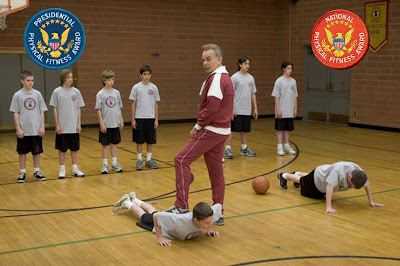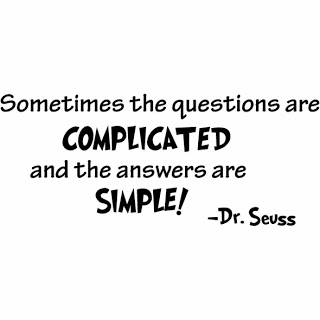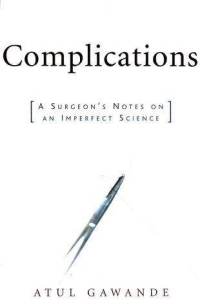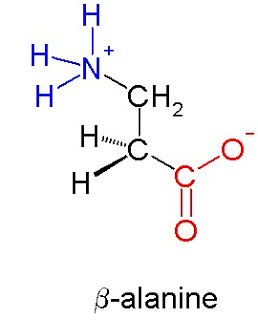If you haven’t had a heart attack, you may now unknot your panties.

Last week, the almighty JAMA published the latest meta-analysis on fish-oil supplementation and secondary prevention of cardiac and stroke events. It’s all the buzz right now, so why shouldn’t I throw in on it?
This hoopla is not unlike the outbreak of “correlation not causation” crap that came out of the Red Meat Will Kill you affair. I wrote about it here. And here. It was much ado about nothing. However, very much like that time, a lot of people have their panties in a knot about this one (mostly proponents of fish oils, mind you). Read More...
Bias doesn’t always work against you (or why gym class might not be all it’s cracked up to be)

This blog entry’s study comes from my friend Brad Pilon, who said, and-I-quote, “I wanna get you back to dissecting papers on your blog,” which jolted me into realizing I haven’t in a long time.
One idea that Brad and I have been talking about (apart from trying to stick to manipulating factors that make LARGE contributions to progress) has been the notion that diet and exercise, though both important for “health” and “fitness”, may have little contributions towards their counterpart body components. Diet seems to have the greatest impact on body fat, while exercise (and more specifically, resistance exercise) seems to have a greater impact on lean body mass. While one CAN use exercise to assist in losing body fat, I think there is probably some truth in the saying, “You can’t out-train a bad diet,” and similarly, I would argue that at most levels, you probably can’t eat yourself more muscles, otherwise, there would an epidemic of Ah-nolds in America, not obese people. Read More...
Everything I needed to know as a physician about weight loss, I learned before grad school.

When confronted with a controversial topic online, I don’t like to write gut-reaction blog posts. I’ve been digesting this one for a while (perhaps too long as the hype seems to have settled considerably and the wave has all but passed). My perspective on weight-loss, fitness and medicine is somewhat unique. Regardless of whether it’s considered reconstructive or “cosmetic”, patient come to see me not only for functional problems, but aesthetic ones as well. In my world, the distinction between form and function is not a sharp line. Every “reconstructive” surgery is an aesthetic one, or at least, has an aesthetic component. While I don’t necessarily get a lot of questions about diet and heart disease, you can bet that if it has to do with fat loss or appearance and diet/activity, I’ve gotten the question in some shape or form.
So when posed with the question, “How much should a physician know about nutrition and fitness?” I can’t help but retort with the question, “How much does anyone really know about nutrition and fitness?” and the more controversial, “How much of the _additional_ information that the purported nutrition and diet ‘experts’ know is really necessary?” Read More...
Don’t fix what isn’t broken

I’ve talked about information overload before, as well as information dieting (yes, before the book came out.)
Today while I was changing in my gym, I overhead two guys talking. Both were built like brick you-know-what’s and neither (though fully clothed in workout gear) looked “fat-big”. Read More...
Complications

I was going to write an opinion piece on physicians’ roles in fitness and nutrition as my first post returning from study-exile, but I’m going to write about something way more personal.
As you may or may not know, I wrote the equivalent of my board exams earlier in May to certify as a plastic surgeon. I got my results back this week and I didn’t pass. Read More...
Screwed if you do, screwed if you don’t: People don’t want to read what they don’t want to hear

This WOULD be a catastrophe. This week, I was asked to write a commentary for Fitocracy on what has now become known as the “Red Meat Will Kill You” Study. The fallout in the blogosphere has been pretty dramatic (and by dramatic, I mean drama-filled and theatrical). There have been a few well-written, thoughtful commentaries, but by far, the bulk of criticism has been the general “correlation, not causation” crowd. While I think this is, by and large, a HYUGE step forward in general research literacy, it also makes me wonder if it’s just another sign of polarized, blinded thinking.
There is a fundamental difficulty with measuring long-term outcomes that are distantly removed from single-point events, and continuous repeated exposures. The three mainstream ways to get at the question of, “Does X make you live longer/shorter?” are: Read More...
Beta-alanine: The meta-analysis – 18 trials, still a marginal effect
 I’ve always thought a meta-analysis on beta-alanine was a good idea. So many of the trials have been underpowered, that it felt like weren’t getting anywhere fast. I wanted to be the one to do it, but life circumstances have kept me from focusing on much other than my main career. So it was a pleasant surprise to see that someone else had the same idea.
I’ve always thought a meta-analysis on beta-alanine was a good idea. So many of the trials have been underpowered, that it felt like weren’t getting anywhere fast. I wanted to be the one to do it, but life circumstances have kept me from focusing on much other than my main career. So it was a pleasant surprise to see that someone else had the same idea.
With just 11 weeks left before my exams though, I’m going to keep this blog entry brief. Read More...
Moment of weakness, act of strength

I’m in what is probably the most stressful period of my life right now, studying for my Canadian board exams. This means that I’m letting my “diet” slip to cope. The other day, while I feeling sorry for myself, I bought a bulk bag of chocolate mini-eggs. We’re not talking the package that you can hold in one hand; we’re talking the package that basically has a handle.
I’m not so far over the edge that I would eat a whole sack of chocolate eggs in one sitting yet. Give me a few weeks. But after a few handfuls, I realized that I had succumbed to a moment of weakness and that eating (eventually) this bag of delicious chocolate eggs really wasn’t in my best interest. There’s coping (a small package of chocolate eggs), and then there’s overcompensation. Read More...
With change comes disruption
Today, I decided to integrate this blog a little more with Facebook. Unfortunately, it means that pre-existing comments weren’t compatible. I apologize to those of you who have taken the time to leave comments here, and welcome new and re-posted comments! The comments aren’t lost; they’re just hidden. If there’s a way to nicely integrate them, I’m all ears! Read More...
Burn the boats: Why you’re going to fail. Or not.
 I’ve been studying and reading health research for decades, and this post is just a bit of my biased gestalt on the state of affairs on obesity, obesity research and the new hope that arises within a TON of people every January.
I’ve been studying and reading health research for decades, and this post is just a bit of my biased gestalt on the state of affairs on obesity, obesity research and the new hope that arises within a TON of people every January.
The preponderance of obesity research indicates that most of you will fail at achieving your goal of weight loss this year; and that of those of you who succeed at achieving the goal within this particular year will ultimately fail because the data generally shows that the weight comes back, resulting in a net effect of zero. What we don’t fully understand still, is why this failure happens; and I’m not sure that we’re going to truly unearth it anytime soon enough to make a difference in your resolution this year. Read More...
